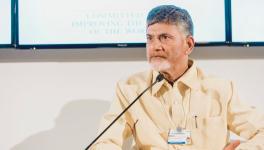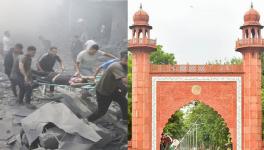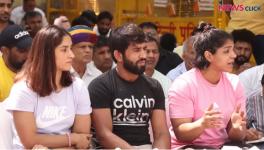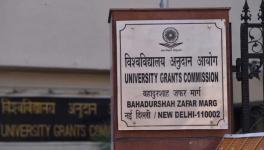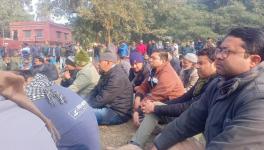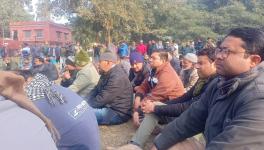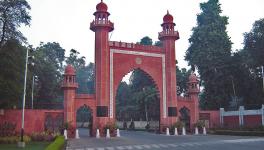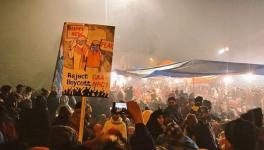Can Sharjeel Imam Be Defended?
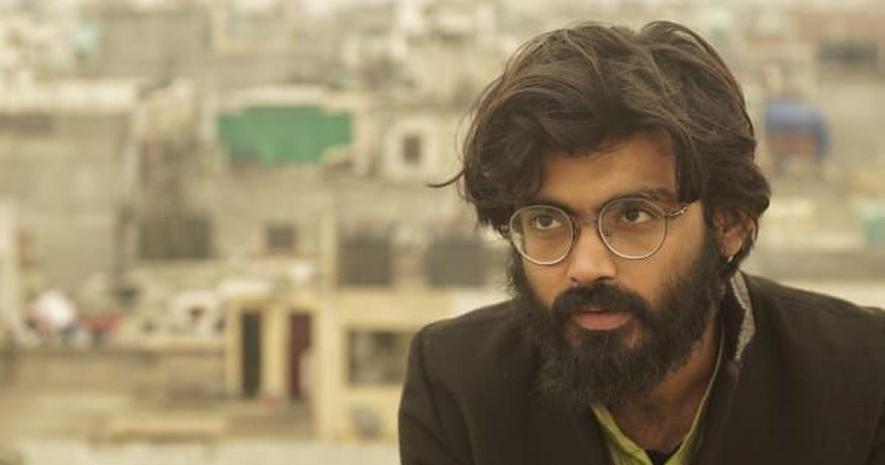
Image Courtesy: Scroll.in
The recent arrest and slapping of a sedition case against Sharjeel Imam is a continuation of the politics of the BJP-RSS combine to demonise Muslims and polarise society. While the sedition charge needs to be opposed, one question remains to be addressed: what does the politics of Sharjeel Imam represent and should that be defended?
Apart from Imam’s hyperbolic position on protest and its consequences for Assam, the real issue is his assertion of Muslim identity. He is unapologetic about raising religious slogans at political gatherings and insists that Hindus should lend their support if they are genuine well-wishers of Muslims. He referred to Shashi Tharoor as “islamophobic” for objecting to the airing of Islamic/religious slogans at public gatherings against NRC/CAA. Many Muslim students and activists who oppose the CAA disagreed with Imam, for they believe his position is “right-wing Islamism”.
Support for Imam came from BAPSA, a Dalit-Bahujan organisation in JNU. This is an extension of the recent development in Indian electoral politics wherein the AIMIM and the Vanchit Bahujan Aghadi in Maharashtra, responded to a need to bring together Muslims and “lower” caste Bahujans to find an independent space to assert themselves.
Indian society is layered, textured and complex. Currently, various unequal discourses are vying for hegemonic space in it. There is also a tripartite division between the Left/liberal constitutionalists led by the Congress, Left parties and independent social organisations, academicians and activists; Dalit-Bahujan formations are increasingly probing the possibility of joint mobilisation with Muslims (Chandrasekhar Azad is a recent case in point); and there is a resurgent neoconservative Hindutva politics led by the BJP-RSS and their “fringe” organisations. Undeniably, the dynamics of the conflict of each of these groupings influences the other discourses and the strategies they adopt to gain a hegemonic position.
Independent Dalit-Bahujan/Muslim politics is making a strong case in highlighting that neither Left/liberal nor the Hindutva brand of politics offer them a viable space to assert an independent position or provide them the required representation. Partly, such a position flows from the failure of the “developmental state” in accommodating the lower rungs of society. Reservations in employment and especially in educational institutions for the Scheduled Castes and Scheduled Tribes was not implemented with any seriousness until 1990, despite it being a constitutional mandate.
Here, Dalit-Bahujans argue that Left/liberals were at the helm of politics and educational institutions, but did not create a situation favourable for them. Hence, their only alternative is to create an independent movement or organisations that can highlight issues related to them. Left/liberal organisations made piecemeal changes in order to accommodate them, but failed to understand the growing aspirations for identity and dignity. This discontent, in effect, led to the rise of Hindutva forces that were able to combine the “hurt pride” of “declining” caste Hindus with the discontentment of Dalit-Bahujans. The cultural idiom they deployed appealed to the non-English speaking, non-urban regional and local elites of various castes. This common cause against urban-civil society is what got articulated as a consolidated Hindu identity.
The rise of Hindutva forces played a diabolical role: it created an optics of being anti-elite (against Lutyens’ Delhi), which combined with a regressive social conservatism that was meant to further preserve the interests of caste Hindus, especially the Brahmins, Banias and Kshatriyas. But, the traditional elites whom Hindutva was representing were at variance with the social elites who had modernised themselves using the same privileges of caste and class that Dalit-Bahujans are today mobilised against. The entitled modern elites were, at least symbolically, challenged by the rise of the Hindutva forces.
Today, we are struck between a Right-wing Hindutva that represents cultural subalterns but is regressive; a Dalit-Bahujan politics that refuses to make a distinction between Left and Right; and a declining Left-liberal politics whose pitch is to hang on to a more ostensibly universal and inclusive idea of citizenship enshrined in the Constitution.
The question that the Sharjeel Imam brand of politics brings to the fore is whether it represents religious fundamentalism or a legitimate hurt over being systematically sidelined and left without a sense of dignity and worth due to being Muslim. Is Imam’s pitch for an exclusive Islamic identity—where he wishes the majority and relatively-privileged Hindus to join the protests on his terms, including the religious slogans—a push for universal justice and dignity? Or is it exclusivist and is he arrogating hegemony unto himself? Does Imam have a real-time choice outside of this kind of religious assertion so that he is not merely counted as a citizen but also respected for being a Muslim?
What we are witnessing is a result of a historical lag and continuing social hierarchies. The assertion of identities that looks necessary to breach the sanitised-secular spaces is born out of losing faith in progressive-secular politics for not delivering what it promised. Yet, it is also reproducing the same dynamics of distrust and exclusivity that the hegemonic discourse had imposed.
It is this impasse and circularity that is handsomely aiding the militant and intolerant brand of Hindutva politics. Intolerance has become a universal language against the past, cutting across castes, classes and religions. It has come to be the only way one can register ones presence as part of a political community. As long as we do not find a way to separate legitimate concerns of dignity and identity from overtly sectarian and hegemonic intolerance, we will continue to move towards a failed democracy, whether in the fold of current Hindutva brand of politics or some other kind of a degenerative anarchy.
The author is associate professor at the Centre for Political Studies, JNU. The views are personal.
Get the latest reports & analysis with people's perspective on Protests, movements & deep analytical videos, discussions of the current affairs in your Telegram app. Subscribe to NewsClick's Telegram channel & get Real-Time updates on stories, as they get published on our website.









